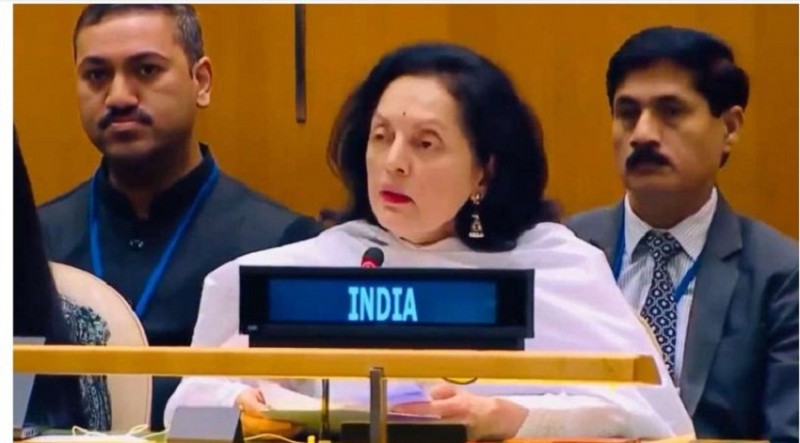
In a recent session of the UN General Assembly, India made a significant decision to abstain from voting on a resolution proposed by Pakistan, co-sponsored by China, addressing Islamophobia. India emphasized the importance of acknowledging the prevalence of religiophobia against not only Islam but also Hinduism, Buddhism, Sikhism, and other faiths, all of which face discrimination and violence globally.
The resolution titled 'Measures to combat Islamophobia' was introduced by Pakistan and received support from 115 member nations, with none opposing it. However, 44 nations, including India, Brazil, France, Germany, Italy, Ukraine, and the UK, chose to abstain from voting.
India's Permanent Representative to the UN, Ambassador Ruchira Kamboj, condemned acts of anti-Semitism, Christianophobia, and Islamophobia while highlighting the need to recognize that religious intolerance extends beyond Abrahamic religions. She stressed that followers of non-Abrahamic religions have also been victims of religiophobia, particularly citing instances of anti-Hindu, anti-Buddhist, and anti-Sikh sentiments.
Kamboj cautioned against setting a precedent with resolutions focused solely on phobias tied to specific religions, as it could potentially divide the United Nations along religious lines. She urged member states to consider the broader scope of religious discrimination globally and emphasized the need for inclusivity in addressing such issues.
India underscored the importance of acknowledging religiophobia against Hinduism, Buddhism, and Sikhism, with millions of followers worldwide. Kamboj pointed out contemporary forms of religiophobia evidenced by attacks on religious sites and the spread of hatred against non-Abrahamic religions.
The resolution condemned discrimination and violence against Muslims, including desecration of holy sites and negative stereotyping. It called for the appointment of a UN Special Envoy to combat Islamophobia, a proposal India opposed in principle due to concerns over resource allocation.
India's rich history as a pluralistic and democratic nation, providing refuge to persecuted communities, was highlighted. Kamboj emphasized India's commitment to combating all forms of religiophobia and discrimination.
During the session, the Assembly rejected two amendments proposed by Belgium on behalf of the EU, with India supporting both. One amendment aimed to remove references to the desecration of the Quran, while the other proposed the establishment of a UN focal point to combat anti-Muslim discrimination within existing structures and resources, instead of appointing a special envoy.
The resolution comes in the wake of the 2019 Christchurch mosque shootings, prompting the UN to proclaim March 15 as the International Day to Combat Islamophobia. UN Secretary-General Antonio Guterres expressed concern over rising anti-Muslim hate and bigotry worldwide, emphasizing the need to combat all forms of discrimination and hate, which threaten the fabric of societies globally.
UKIndia FTA Talks Deferred Until After Lok Sabha Polls A Closer Look
Over 10 Million Homes Enroll in PM-Surya Ghar Free Electricity Scheme